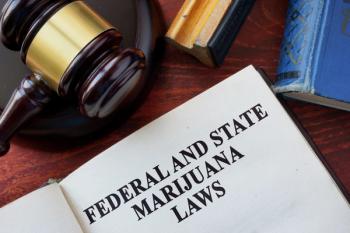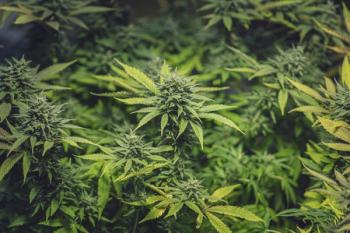
FDA: CBD Requires Separate Regulatory Pathway from Dietary Supplements, Food
The agency intends to work with Congress to create a pathway that balances the desire for access with regulatory oversight and risk management.
According to a statement1 form Janet Woodcock, MD, principal deputy commissioner for the office of the commissioner at the FDA, the Agency has reached the conclusion that “a new regulatory pathway for CBD is needed that balances individuals’ desire for access to CBD products with the regulatory oversight needed to manage risks.” This means that FDA does not believe that the existing regulatory frameworks for foods and supplements are appropriate for cannabidiol (CBD). As such, FDA has also denied three
FDA is citing concerns about safety of long-term use when it comes to liver function and the male reproductive system, as well as the need for additional safeguards such as CBD content limits, and minimum purchase age to mitigate risk of ingestion by children. “The FDA’s existing foods and dietary supplement authorities provide only limited tools for managing many of the risks associated with CBD products,” the statement reads. “Under the law, any substance, including CBD, must meet specific safety standards to be lawfully marketed as a dietary supplement or food additive.”
As a result of this conclusion, recently introduced
“The first takeaway is that FDA did not come out and say CBD products currently sold in the market should be removed or that CBD products are dangerous. They acknowledge that there is room for CBD products in the marketplace,” explains Ashish Talati, partner, Amin, Talati, Wasserman LLP to Nutritional Outlook. “What the industry was hoping for FDA to say is that they will initiate rulemaking to allow marketing of CBD products. Instead, the agency kicked the can so to speak and said a new regulatory pathway is needed for CBD. I don’t think a new regulatory pathway is needed as all the risk management reasons that FDA gave such as prevention of contaminants, CBD content limits etc. can be adequately addressed via existing regulations aimed at ensuring the safety and quality of products.”
Industry is staunchly expressing its disappointment in FDA’s decision, taking issue with its claims of inadequate safety and robustness of the current frameworks to regulate CBD.
“We were extremely disappointed today with the FDA’s announcement concerning the regulation of CBD. When it comes to the safety of CBD, the FDA gets it wrong,” says Jonathan Miller, general counsel of the U.S. Hemp Roundtable, in a press release. “Contrary to the FDA’s continued assertions regarding the safety of CBD, there is clear, established evidence of safety over the years. CBD products have been sold at retail for nearly a decade with no significant safety issues. The Roundtable recently met with the FDA and shared a broad range of safety studies showing that standard CBD serving sizes are safe, while the FDA continues to rely on pharmaceutical studies that show risk at significantly larger doses that are not commonly found in CBD products sold at retail.”
A number of brands have conducted toxicological studies to achieve an independent conclusion of GRAS (generally recognized as safe), including
“It seems that no level of safety evidence will be good enough for FDA,” says Steve Mister, president and CEO of CRN in his own statement. “During the last four years, FDA has repeatedly disregarded evidence demonstrating safety that is relevant to CBD at the levels commonly used in supplements and continues to rely heavily on safety concerns related to high dosage Epidiolex to support the agency’s inaction.”
Industry advocates are also criticizing FDA’s years of inaction, only to ask Congress to act. “FDA has had ample time to consider scientific evidence and develop a regulatory pathway for CBD within the existing legal framework,” states Mister. “Since Congress enacted the 2018 Farm Bill, FDA’s inaction and indecision have frustrated consumer interest in having safe and beneficial CBD products available to them and allowed a ‘gray’ CBD marketplace to emerge without meaningful oversight. The agency’s ‘punt’ to Congress, asking it to intervene after four years, is a further disservice to consumers and responsible industry.”
“This is an astonishing dereliction of duty, especially compared to the agility and professionalism the agency showed it was capable of during the pandemic,” says Daniel Fabricant, president and CEO of NPA. “After more than a decade of promises, hearings, data sharing, market proliferation, and states filling the regulatory vacuum, the FDA’s Dietary Supplement Office claims it cannot do what Congress authorized, which is to regulate dietary supplements under the law.”
Industry agrees that existing regulations under the Dietary Supplement Health and Education Act (DSHEA) and the Federal Food, Drug, and Cosmetic Act (FD&C) are comprehensive enough to address FDA’s concerns. “FDA noted that a new regulatory pathway would benefit consumers by providing clear labels, prevention of contaminants, CBD content limits, and limits on use in certain populations—all this can and should be addressed through the existing dietary supplement NDIN process once FDA creates a legal pathway for CBD in dietary supplements,” says Mister.
“With all of these tools in place as part of the existing, well-established pathways, the FDA’s decision is unwise,” states Miller. “To the extent FDA believes its current resources are not sufficient to implement and enforce existing requirements, the Roundtable supports additional appropriations to assist FDA in its compliance efforts.”
"FDA cannot – via a citizen petition response – undermine the Federal Food, Drug, and Cosmetic Act’s direction and authority to initiate rulemaking to address the exclusory provisions and to let the New Dietary Ingredients (NDI) notification pathway serve its essential function, which is to require sponsors to demonstrate the safety of new ingredients before going to market. Therefore, we have concerns about FDA’s sweeping action today and the precedent it sets for future NDI submissions," said Scott Melville, president and CEO of CHPA, in a statement. "There is a legal process to evaluate the safety of new dietary ingredients, and this is not it. We look forward to working with Congress to explore modernization of the Dietary Supplement Health and Education Act (DSHEA) and to ensure that the NDI process works as was originally intended.”
Advocates also questions the logic of FDA’s arguments. If the question of CBD’s legality as a dietary ingredient hinges on the drug preclusion clause, then why is safety a factor in its consideration? Without drug preclusion CBD should be able to go through the NDIN process like any other novel dietary ingredient. “In essence, FDA is saying ‘it is because we say it is’—without support for that view in the statute,” says Mister. “As we have continued to point out, nothing is stopping FDA from using its rulemaking authority for CBD, other than FDA itself. Instead, FDA suggests Congress must fix this issue when FDA has had the authority to address it all along.”
The fear for industry is that devising an alternative regulatory pathway for CBD and other cannabinoids would give FDA new and far-reaching authority.
“When you read between the lines of today’s FDA statement, the agency appears to be saying that it would prefer to defy and attack DSHEA and develop different regulatory paths for ingredients at its own discretion,” says Fabricant. “That could include requiring premarket approval, unnecessary testing, or who knows what. That is an especially dangerous precedent not only for CBD but for the entire natural products industry and ingredients like hemp that clearly fall under the agency’s jurisdiction.”
Updated on January 27, 2023 at 8:46AM
Reference
- FDA concludes that existing regulatory frameworks for foods and supplements are not appropriate for cannabidiol, will work with Congress on a new way forward. News release. FDA. January 26, 2023. Accessed January 27, 2023.
https://www.fda.gov/news-events/press-announcements/fda-concludes-existing-regulatory-frameworks-foods-and-supplements-are-not-appropriate-cannabidiol
Newsletter
Pharmacy practice is always changing. Stay ahead of the curve with the Drug Topics newsletter and get the latest drug information, industry trends, and patient care tips.























